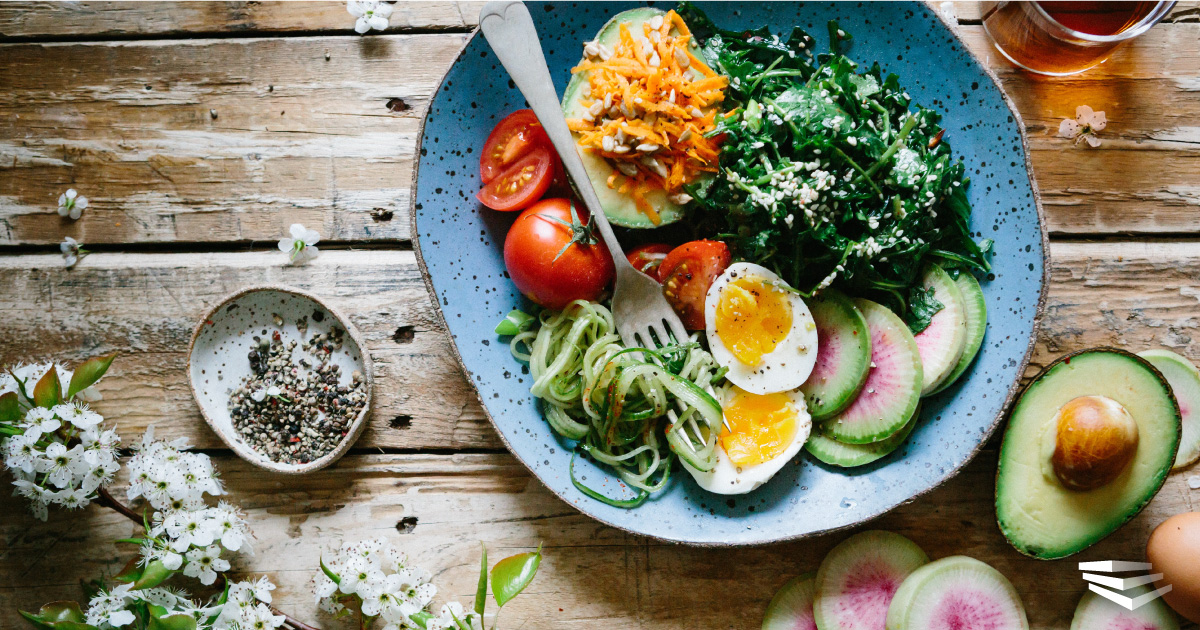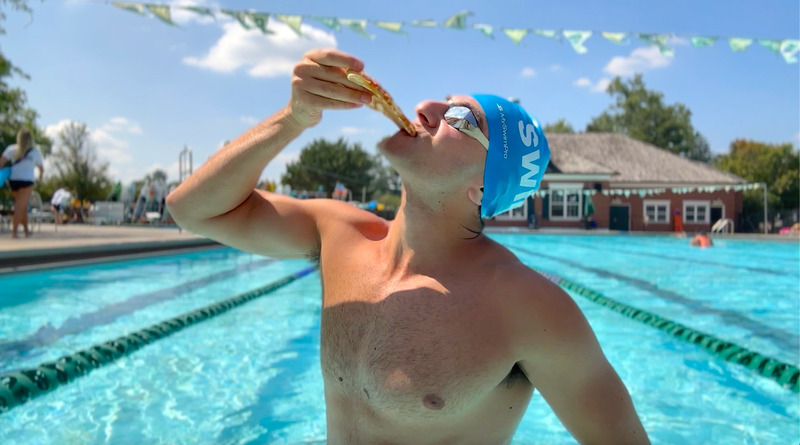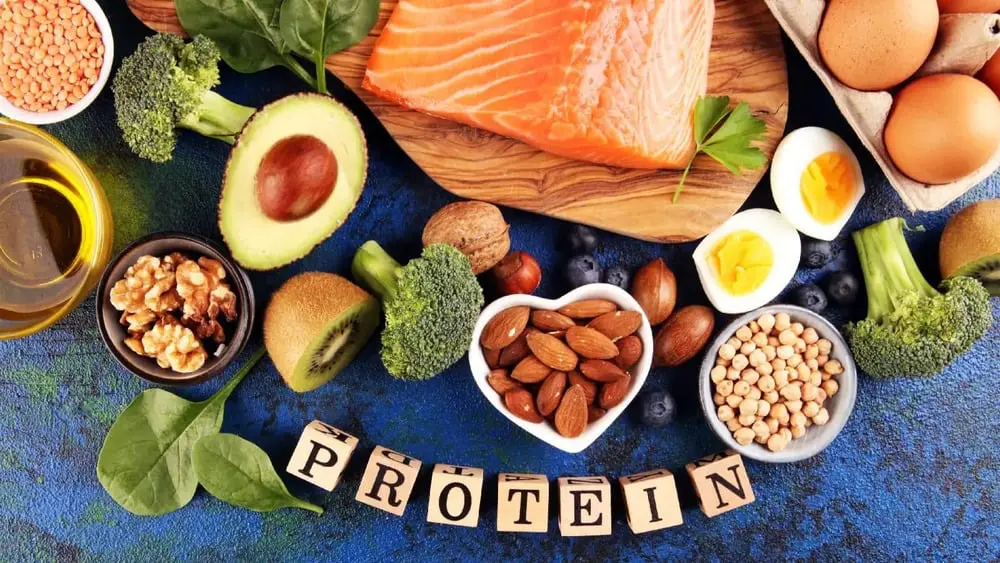Swimming demands not only physical prowess but also a strategic nutritional approach to maximize performance. Understanding and implementing the right diet can significantly enhance a swimmer’s energy levels, recovery, and overall performance. This guide aims to provide essential dietary insights tailored specifically for swimmers aiming to excel in their sport.
Key Takeaways
- Balancing macronutrients is crucial for optimal performance, emphasizing the importance of proteins, carbohydrates, and fats.
- Consulting with nutrition experts can provide tailored dietary plans that cater to individual needs and goals.
- Nutrient timing and meal planning are essential for maximizing energy levels and recovery times.
- Periodized nutrition plans can help swimmers adapt to training cycles and competitions, enhancing overall performance.
- Free nutritional guides and resources are invaluable for swimmers looking to educate themselves and improve their dietary habits.
Balancing It All
Balancing Macronutrients
Fueling your body with a balanced diet is essential for supporting your training, recovery, and overall performance. Swimmers need a sturdy mix of proteins, carbohydrates, and fats. Here’s a quick breakdown:
- Proteins: Build and repair muscle
- Carbohydrates: Provide energy
- Fats: Essential for long-term energy
Consulting Nutrition Experts
It’s a big deal to get your diet right, especially when you’re training hard. Consulting a nutrition expert can help tailor a plan that fits your specific needs and goals. They can provide insights on how to balance your macronutrients effectively and suggest meal plans that boost your energy and recovery.
Starting a Healthy Eating Plan
Getting started with a healthy eating plan can seem daunting, but it’s totally doable with the right guidance. Begin by setting clear, achievable goals. Then, gradually incorporate more balanced meals into your diet, focusing on a variety of nutrients to support your swimming regimen.

Starting a Healthy Eating Plan
Nutrition for Swimmers
Elevating Performance
To really take your swimming to the next level, focusing on what you eat is key. Proper nutrition acts as your body’s fuel, helping you train harder and recover faster. It’s not just about eating more; it’s about eating smart. Incorporate a variety of nutrients to support muscle repair and energy levels.
Optimizing Nutrition
It’s all about quality and timing when it comes to eating right for swimming. Make sure your meals are well-balanced with a good mix of proteins, carbs, and fats. Here’s a quick look at what a swimmer’s plate might look like:
| Meal Time | Protein | Carbs | Fats |
|---|---|---|---|
| Breakfast | Eggs | Oats | Nuts |
| Lunch | Chicken | Rice | Avocado |
| Dinner | Fish | Quinoa | Olive oil |
Eating the right foods at the right time can significantly boost your performance in the pool.
Accessing Free Guides
There’s a wealth of information out there to help you fine-tune your diet for swimming. Look for free guides that offer meal planning tips and nutritional advice tailored to swimmers. These resources can be a great starting point for those new to nutrition-focused training or for seasoned athletes looking to refine their eating habits.
From Macros to Timing
Understanding Nutrient Timing
Nutrient timing is all about when you eat, not just what you eat. Timing your nutrient intake can significantly enhance your swimming performance by ensuring your body has the right fuel at the right time. For instance, consuming carbohydrates shortly after starting an intense training can help maintain energy levels throughout.
Choosing the Right Supplements
Supplements can be a game-changer, but only if chosen wisely. It’s crucial to select supplements that are proven safe and effective for swimmers. Remember, not all supplements are created equal, and the best ones are those that complement your diet and training needs.

Choosing the Right Supplements
Meal Planning Tips
Meal planning isn’t just about preparing food; it’s about strategizing your nutrition to meet your training demands. Here are a few tips:
- Plan your meals around your training schedule.
- Include a variety of nutrients to cover all your dietary needs.
- Experiment with different meals during training to find what works best for you.
Remember, the key to successful nutrient timing is consistency and attention to detail.
Why Nutrition is Crucial for Swimmers
Discipline Specific Recommendations
Swimmers require a unique blend of nutrients to maintain energy levels and muscle function. Carbohydrates are the primary energy source for swimmers, as they fuel both short bursts of high-intensity activity and longer, endurance-based efforts. It’s crucial to tailor your diet to the specific demands of swimming to ensure peak performance.
Periodizing Nutrient Intake
To adapt to the varying demands of training cycles, swimmers should periodize their nutrient intake. This involves adjusting carbohydrate, protein, and fat intake based on the intensity and volume of training. For example, during heavy training periods, increasing carbohydrate and protein intake can help maintain energy and facilitate recovery.
Recognizing Individual Needs
Every swimmer is different, and recognizing individual dietary needs is key to optimizing performance. Factors such as age, gender, weight, and training intensity all play a role in determining the right nutritional balance. Consulting with a nutrition expert can provide personalized guidance to help swimmers meet their specific goals.
Eat to Win Diet
Importance of Balanced Meals
Balanced meals are your secret weapon. They fuel your body with the right mix of nutrients, keeping you in top shape for the pool. Think of your plate as a mix of carbs, proteins, and fats—each one plays a crucial role in your energy and recovery.
Meal Suggestions
Here’s a quick guide to what your meal plate should look like:
- Carbs: Whole grains like brown rice, oats, and whole wheat pasta.
- Proteins: Lean meats, fish, and legumes.
- Fats: Avocado, nuts, and seeds.
These combinations ensure you’re not just eating, but eating smart.
Eating Well for Performance
To really nail your swim meets, your diet should be as disciplined as your training. Eating well means choosing nutrient-rich foods that boost your energy levels and recovery time. It’s not just about the calories—it’s about making every bite count towards your performance goals.
Fueling for the Pool
Eating Enough
To keep your energy levels high and your strokes powerful, it’s crucial to eat enough. Swimmers burn a ton of calories during training and competitions, so skimping on meals can lead to decreased performance and increased fatigue. Make sure your diet is rich in carbohydrates, proteins, and healthy fats to sustain your energy throughout the day.
Choosing Energy-Boosting Snacks
Snacking isn’t just about filling up; it’s about fueling up. Opt for snacks that provide a quick energy boost without weighing you down. Simple sugars like glucose and fructose, found in fruits, can be your best friends, especially before a swim meet. Here’s a quick list of swimmer-friendly snacks:
- Bananas
- Energy bars
- Yogurt with honey
- Dried fruits
Pre-Competition Eating Strategies
The meals you eat before competition can make or break your performance. Aim to have a meal rich in carbohydrates 2-3 hours before your event to ensure a steady supply of energy. If you’re close to race time, stick to something light yet energizing, like a banana or a small energy bar. Remember, hydration is key, so keep sipping water right up to your event.
Unlock Your Swimming Potential
Learning Through Guides
Diving into the world of swimming can be overwhelming, but with the right guides, you can navigate the waters with ease. These guides offer comprehensive insights into diet, performance, and how to fuel your body for peak performance. They’re your go-to resource for turning knowledge into actionable steps that enhance your swimming journey.

Learning Through Guides
Implementing Diet Tips
Implementing the right diet tips can significantly boost your performance. It’s not just about eating more; it’s about eating smart. Here’s a quick list to get you started:
- Focus on high-energy foods
- Hydrate adequately before and after swims
- Include protein for muscle repair
- Balance carbs and fats for sustained energy
Achieving Optimal Performance
To achieve optimal performance, it’s crucial to put what you’ve learned into practice. Regularly updating your diet and training plans based on the latest research and your body’s feedback is key. Remember, every swimmer is unique, so tailor your approach to meet your specific needs and goals.
Dive into the world of swimming with our comprehensive resources and expert guidance at Swim Time Log. Whether you’re a beginner or an advanced swimmer, our techniques and tips will help you master the art of swimming. Visit our website to explore more and take your swimming skills to the next level!
Conclusion
In wrapping up, remember that the journey to optimal nutrition for swimmers is a marathon, not a sprint. Balancing your diet with the right mix of proteins, carbs, and fats, while also considering the timing and type of nutrients, can significantly enhance your performance in the pool. Whether you’re just starting out or looking to refine your eating habits, the guidance of a nutritionist can be invaluable. Keep aiming for progress, not perfection, and remember that every small adjustment can lead to greater results. Dive into your nutrition plan with the same vigor you bring to your swim training, and you’re sure to see the benefits ripple through your performance!
Read more: Essential Foods for a Swimmers Diet
AUTHOR
Sang Nguyen
Sang Nguyen is a former national swimmer for Vietnam who has transitioned into coaching. With a passion for fostering a healthy swimming community and connecting like-minded individuals,......Read More
BLOG
Maybe You Are Interested
Good Swim Meet Snacks: What to Eat for Optimal Performance
Good nutrition is crucial for swimmers to maintain energy, recover quickly, and perform at their...
Read More...Optimizing Your Performance: The Best Diet for Swimming Training
Optimizing your performance in swimming is not just about rigorous training; it’s equally crucial to...
Read More...Achieve Peak Performance with This Diet Chart for Swimmers
Whether you’re a novice or an expert swimmer, understanding the right diet is crucial for...
Read More...Eating Like a Champion: Exploring the Diet of Michael Phelps
Michael Phelps, renowned for his Olympic triumphs, has a diet as extraordinary as his swimming...
Read More...Muscle Gain for Swimmers: Tailoring Your Diet for Strength
Swimming is a demanding sport that requires a tailored approach to nutrition to support muscle...
Read More...A Comprehensive Diet Plan To Gain Weight For Swimmers
Swimming is a demanding sport that requires meticulous attention to nutritional needs to optimize performance,...
Read More...